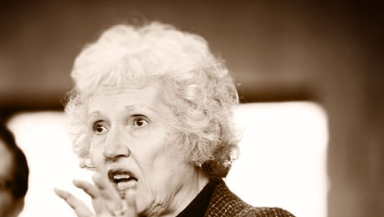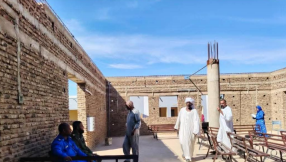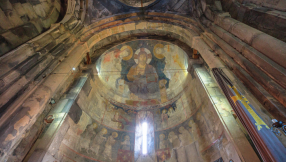
Author and scholar Phyllis Tickle, who has died aged 81, was widely respected for her spiritual writing and keen-eyed analysis of the modern Church.
She wrote widely about "emergence Christianity", arguing in her book The Great Emergence that Christianity is undergoing a massive upheaval as part of a pattern that occurs every 500 years, in which old ideas are rejected and new ones emerge. Modern Christianity, she believed, was entering a "post-denominational" mode in which old structures would either disappear or adapt to changing times. She also wrote an influential trilogy on prayer, The Divine Hours, promoting fixed-hour prayer.
Here are five inspiring quotes from her works.
1. Prayer is a nonlocative, nongeographic space that one enters at one's own peril, for it houses God during those few moments of one's presence there, and what is there will most surely change everything that comes into it. Prayer, its opal walls polished to transparency by the centuries of hands that have touched them, is the Tabernacle realized and the wayside chapel utilized. (Prayer Is a Place)
2. I'm not out to save the world, just to be part of it. (Emergence Christianity)
3. Emergence Christians are allergic to real estate because, they will say, "The minute you own a piece of real estate, then you have to have somebody to clean it, then you have to have somebody to be sure that it gets clean, then you have to get somebody to be sure that it's insured, and the next thing you know, you've got a bishop." (Faith and Leadership interview)
4. The Reformation was to answer the question "Sola Scriptura, Scriptura sola". While we may laugh and say the divisiveness was Protestantism's greatest gift, ours is a somber joke. Denominationalism is a disunity in the Body of Christ and, ironically one that has a bloody history. Now, some five hundred years later, even many of the most diehard protestants among us have grown suspicious of "Scripture and Scripture only"...We begin to refer to Luther's principle of "Sola Scriptura, Scriptura sola" as having been little more than a paper pope in place of a flesh and blood one. And even as we speak, the authority which has been in place for five hundred years withers away in our hands. (The Great Emergence)
5. Like a double helix rendered elegant by complexity and splendid by authority, the amalgam of gospel and shared meal and the discipline of fixed-hour prayer were and have remained the chain of golden connection tying Christian to Christ and Christian to Christian across history, across geography, and across idiosyncrasies of faith. (The Divine Hours)
Follow @RevMarkWoods on Twitter.













